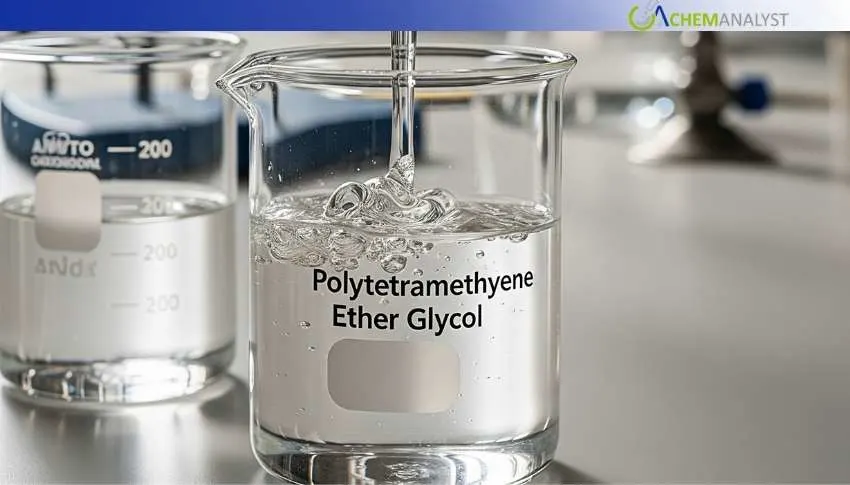Welcome To ChemAnalyst

Polytetramethylene Ether Glycol (PTMEG) prices witness pressure across the globe during the first half of August 2025, dragged by oversupply, weak fundamentals of spandex, and dull orders from the textile industries. Weak demand from the Asian continent, stagnant summer slowdown in Europe, and cautious buying sentiments in the US further aggravated the bearish sentiment.
In China, the PTMEG market continued to struggle under weak downstream pull as the textile sector faced muted orders and high inventories. Spandex producers operated at reduced rates, limiting procurement, while U.S. tariff challenges further restricted export opportunities and kept sentiment soft in the PTMEG market.
Although the Shanghai BASF announced the suspension of the PTMEG units, attributed to maintenance, the domestic market keeps possessing stockpiles of PTMEG which has kept PTMEG curb from any spur in buying. Slowdown in cargo movements was being noted at the Port of Shanghai and Ningbo where shipping vessels were piled up as rainstorms left the vessels stranded.
Prices of textiles, clothing, and apparel dipped by 0.1% month on month, indicating either stagnancy or overall dullness in PACE of recovery in the end-user segment. Buying from the downstream remained limited to merely immediate requirements, which kept the sentiment muted to continue with the bearish outlook for the near term.
South Korea’s PTMEG demand stayed weak, undercut by sluggish spandex activity and persistent textile sector challenges. Official trade data showed that in July, South Korea’s petrochemical shipments fell 10.1% year-on-year, while manufacturing activity contracted for the sixth consecutive month, reflecting domestic economic weakness alongside soft foreign demand.
In India, PTMEG consumption held moderate support from spandex production, yet tariff-related risks clouded the outlook. While textile and apparel exports showed year-on-year growth, the U.S. decision to impose a 50% tariff on Indian goods disrupted momentum. Exporters, particularly in Tirupur, reported reduced fresh orders, raising concerns about sustained demand.
In Europe, PTMEG prices remained under pressure as the summer holiday lull reduced market activity. The textile and clothing industry struggled with declining new orders, subdued consumer demand, and weak spandex fundamentals, while stable feedstock costs provided no upward push.
PTMEG supply levels across Europe were steady, though distribution faced delays from port congestion at Hamburg, Antwerp, and Rotterdam. Despite logistical hurdles, inventories stayed high, and competitive offers from Asia added further pressure, leaving distributors under strain to clear stock.
Export competitiveness was reduced by trade barriers, while buyers limited purchases to short-term requirements. Confidence remained low, with inquiries muted and sentiment broadly bearish.
In the U.S., PTMEG demand was steady but uninspiring. Retail clothing sales offered temporary support, yet converters limited procurement to existing inventories. Industrial applications showed stable consumption, but oversupply continued to cap momentum, leaving market activity balanced yet insufficient for recovery.
As per the ChemAnalyst data, PTMEG prices are likely to remain under pressure as oversupply, weak spandex demand, and sluggish textile orders dominate global sentiment. Traders are expected to remain cautious about restocking, leaving the near-term outlook soft and bearish.
We use cookies to deliver the best possible experience on our website. To learn more, visit our Privacy Policy. By continuing to use this site or by closing this box, you consent to our use of cookies. More info.
